International Affairs
 |
 |
 |
 |
 |
 |
 |
How Russia Crushes Protests:
The Memorial Report
On August 24, exactly one and a half years after the invasion of Ukraine by the Russian army, the project “Support for Political Prisoners. Memorial” in collaboration with OVD-Info published a short report with the eloquent title: “A year and a half after Russia's large-scale invasion of Ukraine. How does the Russian State treat those who protest?”
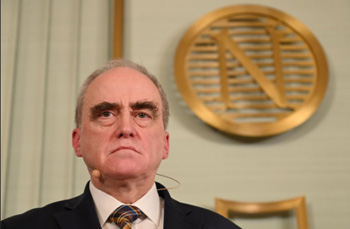
Jan Rachinsky, Ukranian Nobel Price winner, head of the Memorial Society, responsible for this report
The cards provide information on the age, sex and professions of the victims.
There are 542 men and 142 women, the latter being subject to a greater risk of violence during the investigation phase (psychological pressure, threats) and in prison. ...
The average age is respectively 37 for men and 36 for women, but the ages range from 78 to 15 years. On the professional level, it is not surprising that persons who work in NGOs, journalism, politics and culture are the most targeted. Those who defend human rights, those who inform, those who propose reforms or state models different from the official one, and those who place their skills at the service of society are the number one enemy of every dictatorship. Putin’s Russia is no exception.
From a geographical point of view, the main “centers of dissent” are Moscow and St. Petersburg, but the high number of investigations in the autonomous republics of Dagestan and Tatarstan is striking. There is also no shortage of examples in Buryatia and Ingushetia and in many other regions of the Federation, 78 to be precise.
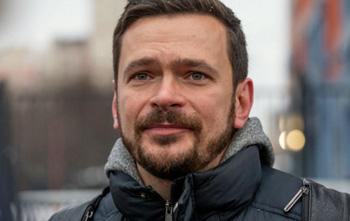
Ilya Yashin, above, & Maksin Kats, below, sentenced to 8 years in jail for speaking against the war in Ukraine
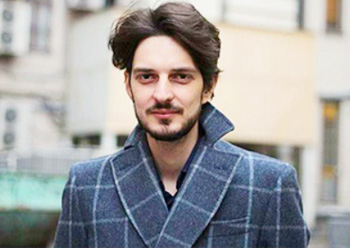
Ilya Yashin, who is serving an eight and a half year sentence in a Moscow prison, and Maksim Kats, recently sentenced in absentia to eight years in prison, are just two of the 229 people criminally prosecuted for having denounced the Bucha massacres or having defined as “war” what the regime requires to be called a “special military operation.”
This is followed, in quantitative terms, by the charges pursuant to articles 205 and 205.2 linked to terrorist activities, which represent nothing new in 2022. This was the charge, for example, of Maksim Smyshljaev, sentenced on August 11, 2017, to 10 years of penal colony under the harsh regime.
"Discrediting the army” (art. 280.3) is the other main charge of the Russian repressive system. Then there are a series of accusations not directly linked to the war context, aimed at keeping suspicious persons at bay, often militants in political groups (first and foremost anarchists and socialists) who may represent a threat to the status quo. Thus, accusations of “vandalism” are flooding the country – made against anti-militarist writings by street artists or even broken windows in recruitment centers; these are punished with severe penalties.
The data are not complete and are updated continuously, literally daily, according to information from OBD-info; 80 hearings in politically motivated court cases are scheduled this week. Human rights defense centers are worried about the growing number of investigations for high treason: in the month of April 2023 alone, eight were opened.
The director of the human rights protection project “Pervyj Otdel,” Dmitri Zair-Bek, emphasized that similar surges were seen after the war in Georgia in 2008 and at the beginning of the one in Donbas in 2014. In the West as in Russia a sensation was caused by the 22-year sentence imposed last September on journalist Ivan Safronov, born in 1990, in what Micol Flammini defined as a “journalism trial.”
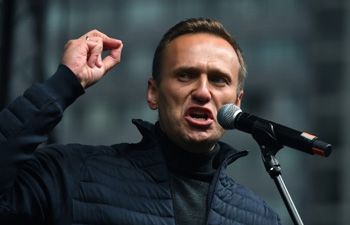
Aleksei Navalny, the main opponent to the government: 19 years in prison for ‘extremist work’
Besides “exemplary punishments” such as those of Safronov and Navalny it is also worth noting the 25 years given to journalist and politician Vladimir Kara-Murza, arrested in 2022 and found guilty of high treason on April 17 of this year. This is only one of the forms that absolute arbitrariness has now assumed on the bench of the Russian courts.
There are “endless trials,” such as those brought against Aleksandra Skochilenko, in custody since April 11, 2022; Viktorija Petrova, in prison since May 6, 2022; and Vyacheslav Korolev, in a holding prison in Kolpino near St. Petersburg awaiting the final verdict since July 12, 2022.
Of course, there are those who can argue that if the alternative is a definitive sentence to an unspecified number of years of imprisonment, the exhausting sessions in court, the summoning of experts, the cancellation – sometimes unmotivated – of the hearings are better. But such harassment is proof of a justice often left to the mercy of the whims of the judiciary, increasingly subservient to the wishes of the political power.
Another ancient practice also seems to have come back, the search for new charges at the end of a prisoner's first sentence – which is what happened when the Soviet Union generated the so-called povtorniks, that is, those who should “repeat” (from the verb povtorit) a period of imprisonment. This is what has happened in recent days to mathematician Azat Miftachov, who was sentenced while working on his doctorate at Moscow State University. He spent the last four years in a prison in Omutninsk (Kirov region) and was released on September 4. While he was still behind bars the Russian authorities initiated a new criminal case against him under Article 205.2 (“incitement to terrorism”).
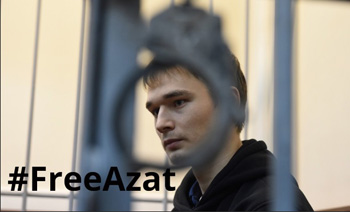
Mathematician Azat Miftachov received 4 more years in prison after finishing his first 4 year sentence
In Russia, judicial persecution is the latest stage of the assault on fundamental freedoms. The law on “foreign agents” continues with rigor, forcing historic organizations to close their doors (among the latest, the Sakharov Center, Agora, Sova, the Helsinki Group of Moscow) or to work in conditions of extreme difficulty, as with the Center Levada, Golos, and many others. From the end of 2020, even native personalities can receive the infamous mark [foreign agent] which forces them to leave the country or continue their activity clandestinely.
Last Friday it was the turn of Dmitri Muratov, 2021 Nobel Peace Prize winner; the week before Linor Goralik, writer, poet, essayist, entrepreneur and prominent figure in the Russian-language and cultural panorama. The joke is now widespread that being a “foreign agent” has become a sign of decency.
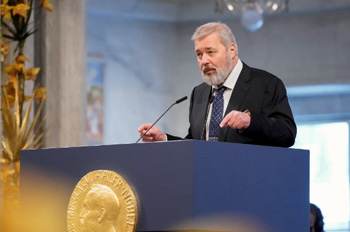
Russian 2021 Nobel Prize winner Dmitri Muratov has been harassed for being a ‘foreign agent’
When dealing with numbers it is always natural to try to measure them: Are 600 political prisoners in Russia (and over 1,500 in Belarus, let us not forget) a lot or a few? Some time ago, during an intense interview, journalist Ekaterina Gordeeva asked this question of Evgenia Kara-Murza, wife of Vladimir Kara-Murza, who had just been transferred to Omsk prison in Siberia, 2,750 km from Moscow. Her response was immediate and unambiguous: “Katja, one is already too many.”
On August 31, at the Nobel Peace Conference 2023, Jan Rachinsky, president of Memorial, reiterated some simple but fundamental truths: “A human being is not material to be sacrificed to achieve the goals of the State, as the current Russian authorities seem to believe. A human being is the master of the State and its creator. It is not the State that must decide how persons should live; it is the people who decide how the State should behave. These are not abstract humanistic ideals; they are the ABC for the survival of a society.”
In Russia 684 people remind us of this every day.
First seen in Il Sismografo on September 24, 202
Translate from Italian by TIA
Posted September 27, 2023

______________________
______________________
 Volume I |
 Volume II |
 Volume III |
 Volume IV |
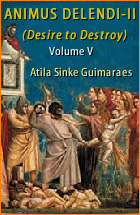 Volume V |
 Volume VI |
 Volume VII |
 Volume VIII |
 Volume IX |
 Volume X |
 Volume XI |
 Special Edition |


